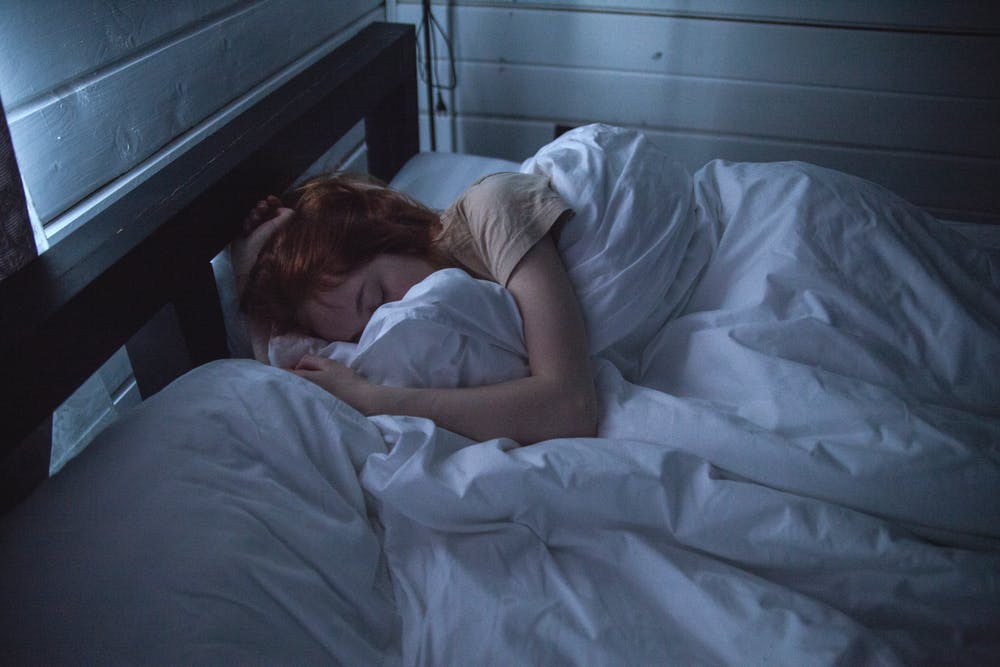Experiencing the occasional problem falling asleep is not uncommon for many people. But, a lack of sleep at night can add up and have a negative impact on an individual’s health.
When people suffer from a lack of sleep, they can experience difficulties in functioning during regular daytime activities. These difficulties can create problems at work, school and home. In order to prevent these problems, here are some solutions for what is typically known as insomnia.
What is Insomnia?
The medical term insomnia is used to describe a common sleep disorder. Over one-third of Americans report difficulty sleeping at some point in their life. Individuals with insomnia have trouble falling asleep and/or maintaining sleep. Due to this lack of sleep, people who suffer from this condition
As a result, they receive too little sleep or have poor-quality sleep. They may not feel refreshed when they wake up. In other cases, they may have trouble staying asleep or wake up too early in the morning. These sleep problems can arise due to other medical conditions such as sleep apnea, bipolar disorders or depression.
In addition to affecting the duration and quality of sleep itself, many medical and mental health conditions are worsened by these sleep-related problems.
Insomnia – Short-term, Long-term & TMS:
In many instances, insomnia is rarely an isolated medical or mental health condition. It is usually a symptom of another illness or life events. For example, short-term insomnia or other sleep problems are common during periods of stress, major life events or travel. These sleep problems are usually remedied by exercise, a hot bath or altering the bedroom environment.
However, longer periods of insomnia that lasts for more than three weeks should be investigated by a healthcare professional. Some research has shown that these periods of prolonged insomnia could even be due to increased brain plasticity in the motor cortex. Research from Johns Hopkins reported that people with chronic insomnia display more plasticity and activity than good sleepers in the part of the brain that controls movement.
Researchers found that the motor cortex in people with severe insomnia was more adaptable to changes than in a group of good sleepers. The study suggests that in some people the brain’s neurons are more excitable. This creates a more constant state of heightened information processing that may interfere with sleep.
In order to conduct the study researchers used transcranial magnetic stimulation (TMS) to precise locations in the brain. Individuals received 65 electrical pulses using TMS a device.
The study concluded that the exact origins of the increased brain plasticity in people with insomnia are unclear. It is not clear as to whether this increased plasticity is beneficial or the source of the problem. Or, the brain’s response could be a mechanism to address the consequences of sleep deprivation associated with chronic insomnia in individuals.
Other studies have also looked into whether TMS treatments can play a role in diagnosing and treating insomnia.
Tips for Getting a Good Night’s Sleep:
A restful night’s sleep can be achieved by using sleep aids, relaxation techniques and a sleep-friendly environment. However, here are some additional steps people can take in order to improve the quality and duration of their sleep:
- Good sleeping habits: Maintaining a regular sleep schedule, avoiding stimulating activities before bed and having a comfortable sleep environment.
- Relaxation techniques: Deep breathing, progressive muscle relaxation and mindfulness can help people decrease their anxiety about going to sleep.
- Medication: Many psychiatric drugs are used to promote sleep in people with insomnia. However, people should be careful when taking these medications. Healthcare providers generally recommend staying on medication for only a few weeks. But, but there are a few medications that have been approved for long-term use.
- Herbal remedies: Melatonin and Valerian Root are two herbal remedies that are available at many pharmacies and stores. However, the effectiveness of these treatments for promoting sleep has not been approved by the FDA.
- Cognitive behavioral therapy (CBT): This type of therapy can help people control or eliminate their negative thoughts. These unwelcomed thoughts and worries are what sometimes keep some individuals awake at night.
The first-line treatment for insomnia is to develop good sleeping habits while simultaneously fixing the underlying conditions that can create sleep problems. But when these solutions are not enough, people should seek help from a trained mental health provider. The lack of sleep over a long period of time severely impairs a person’s mental and physical health.
About Emerald Psychiatry & TMS Center:
The successful treatment of insomnia, and other related conditions, is one of the specialties at Emerald Psychiatry & TMS Center. As a behavioral and mental health practice, they understand that they are here to serve the needs and concerns of their patients. Emerald Psychiatry & TMS Center is proud to provide mental health treatments and services throughout central Ohio. For more information about treatments and services, email them or call (614) 580-6917.
Follow on Twitter:
https://twitter.com/emeraldpsychtms
#EmeraldPsychiatry #OhioPsychiarty #MentalHealth #ColumbusTMS #DublinTMS #WestervilleTMS #OhioPsychiarty #TMS
Contributor: ABCS RCM


Recent Comments